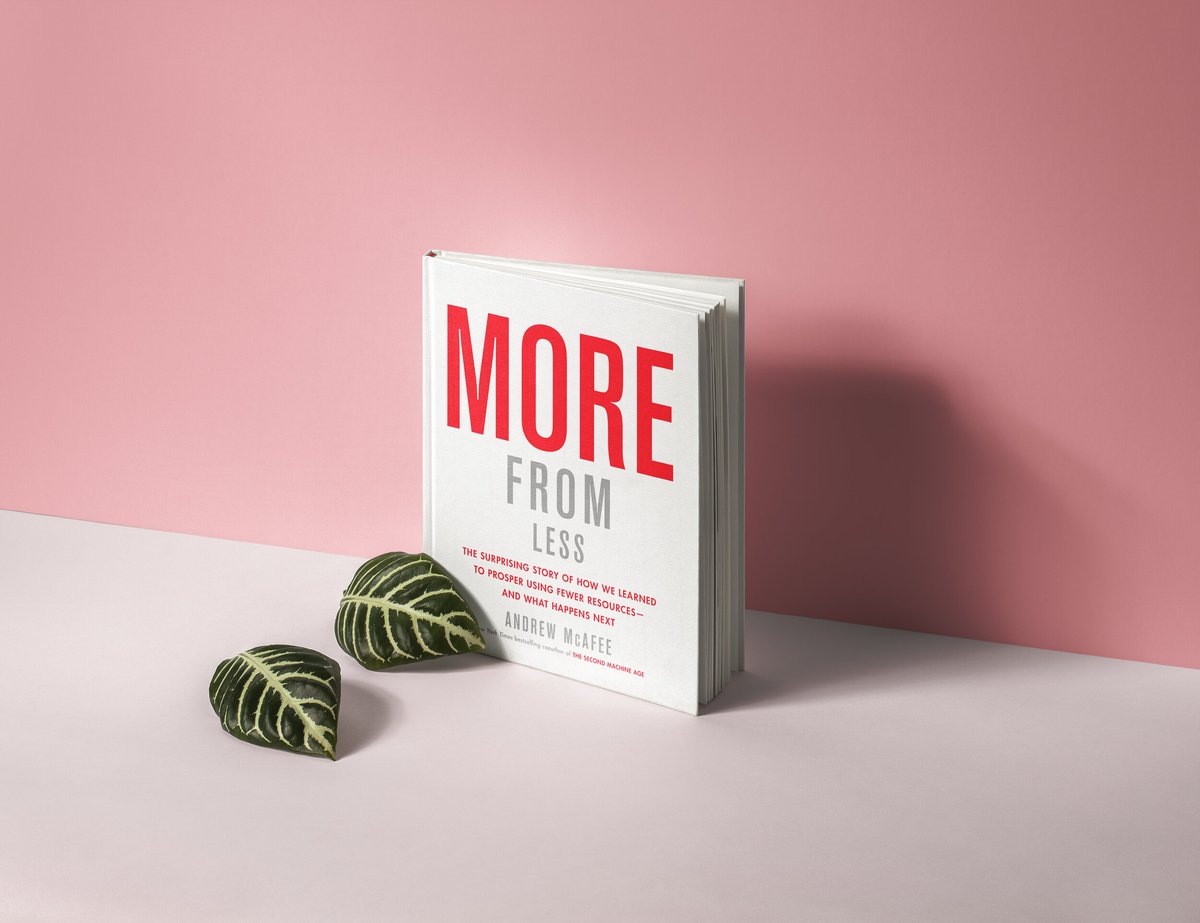More from Less by Andrew McAfee - Book Recommendation

I would like to start this recommendation by stating that this book has been my favourite of 2019. Usually, I don’t read fiction and I try to read books that are about a topic I’m interested in learning and this one hit all the right buttons: history, progress, technology, resource consumption and pollution. I heard about it on the Making Sense Podcast by Sam Harris, where the author, Andrew McAfee, was interviewed and they had a very insightful conversation about the main topics of the book.
The book essential idea is “dematerialization” and conceptualises how the consumption of many resources in developed countries like the United States is actually declining, especially metals, fertiliser, water, paper and timber, all this thanks to capitalism and technological progress. Now we are able to get more from less, as the title suggests. The role of technological progress is evident, but capitalism is the main driver of this transformation because its objective is to cut costs, and a great way to do this is reducing the use of resources. To achieve this, some great examples are the computer, smartphone and other digital tools, which were developed and in consequence, lowered the number of devices needed and we, as a society, changed from physical objects to digital ones that have a much lower impact on the environment. Another great example of this conjunction of capitalism and technological progress is the evolution of cans, those we use to drink soda or beer from, they started being manufactured in 1959 with a weight of 85 g, and nowadays there are cans that weight 9.5 g, that’s a huge material reduction to achieve the same.
Everything starts with the history of human prosperity and the relationship of progress with the increase of resource consumption, from the moment humans started creating communities until a few years back when there was no longer a correlation between progress and resource consumption, not in absolute and even less in per capita terms. This history lesson was really entertaining and explained the industrial revolution as I’ve never read it, in a way that when I picked up the Kindle I had no doubt which book I wanted to read (usually I’m reading three jumping from one to another). Then the research made by the author, using relevant and trustworthy sources, is presented with all the graphs, figures and analysis that shows this dematerialization. Why this happened follows it, where the four horsemen of the optimist (capitalism, tech progress, public awareness and responsive government) are the main drivers and the author goes into detail of explaining why this is.
The book does not only shows the good side of capitalism, it also reflects on the market failures and where does not always benefit humanity, this is why public awareness and responsive government are crucial to reverse climate change and its effects. The last three sections of the book are the consequences of this change, the positive and negative, what does the future looks like, and how we could help to achieve prosperity for both humanity and our planet. His argument is not that things are good enough, that everything we are doing is right or that we have nothing to worry about, but he tries to outline what we have done correctly in order to learn from our actions to solve the current issues in the most effective way. Just as the author points out: “the most important thing we can do for the planet is inform ourselves, and to use the best available information to guide our actions and decisions”.